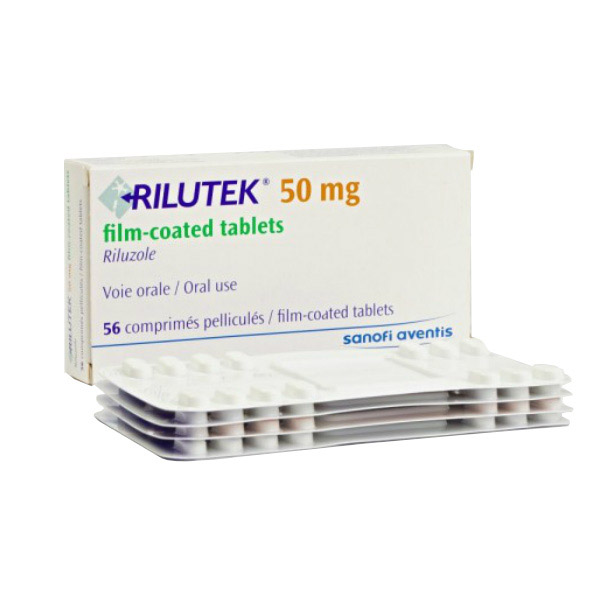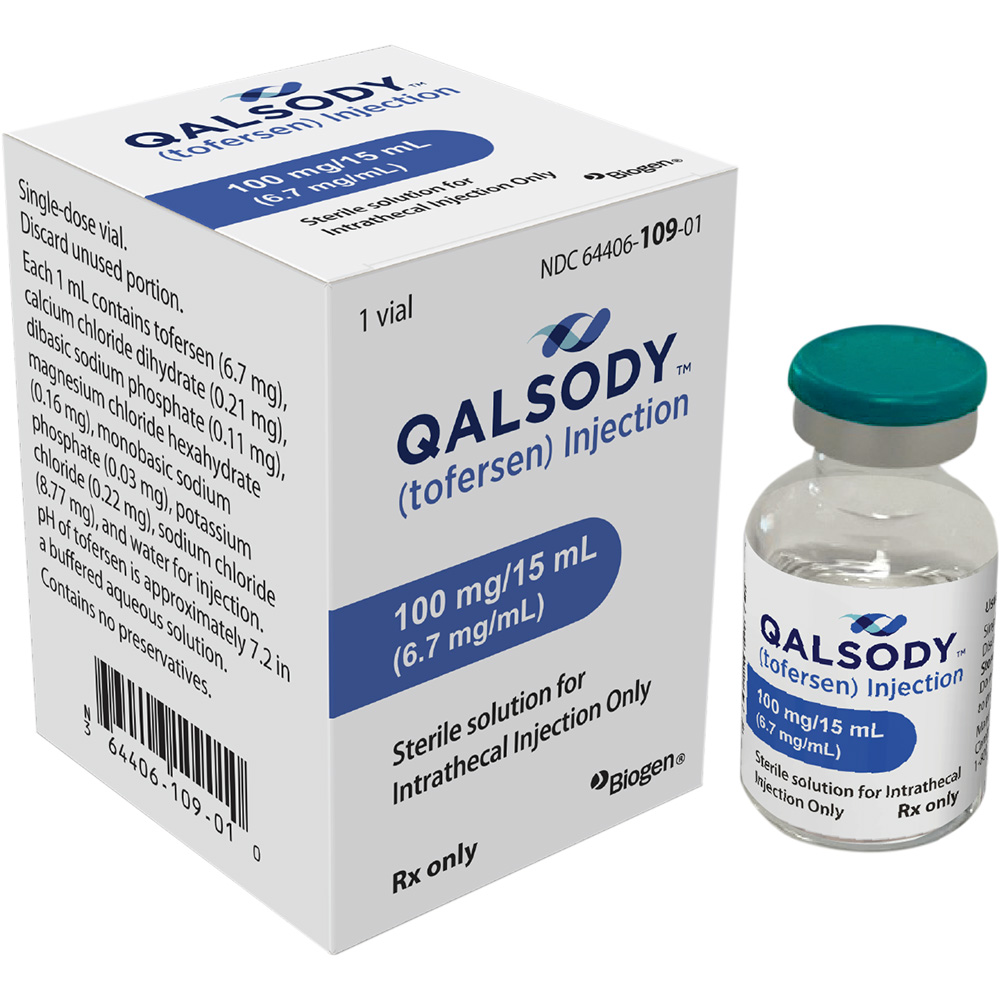Rilutek (riluzole) vs Qalsody (tofersen)
Rilutek (riluzole) vs Qalsody (tofersen)
Rilutek (riluzole) is an FDA-approved medication indicated for the treatment of amyotrophic lateral sclerosis (ALS), and it works by reducing the release of glutamate, which is thought to be involved in the damage of motor neurons. Qalsody (tofersen), on the other hand, is an investigational antisense oligonucleotide designed to reduce the production of superoxide dismutase 1 (SOD1), which is a protein associated with a genetic form of ALS. When deciding on the appropriate medication, it is crucial to consider the specific type of ALS a patient has; Rilutek is for general ALS treatment, while Qalsody targets a specific genetic form of the disease and is still under investigation, meaning its availability may be limited to clinical trials.
Difference between Rilutek and Qalsody
| Metric | Rilutek (riluzole) | Qalsody (tofersen) |
|---|---|---|
| Generic name | Riluzole | Tofersen |
| Indications | Amyotrophic Lateral Sclerosis (ALS) | Treatment of Amyotrophic Lateral Sclerosis (ALS) in patients with a confirmed SOD1 mutation |
| Mechanism of action | Reduces glutamate release | Antisense oligonucleotide that targets SOD1 mRNA to reduce SOD1 protein production |
| Brand names | Rilutek | Qalsody |
| Administrative route | Oral | Intrathecal |
| Side effects | Dizziness, gastrointestinal disturbances, liver function alterations | Headache, back pain, fall, arthralgia, and procedural pain |
| Contraindications | Hypersensitivity to riluzole or any component of the formulation; liver disease | None known |
| Drug class | Glutamate inhibitor | Antisense oligonucleotide |
| Manufacturer | Sanofi | Biogen |
Efficacy
Rilutek (Riluzole) and Its Efficacy in ALS
Rilutek, known generically as riluzole, is a medication approved by the FDA for the treatment of Amyotrophic Lateral Sclerosis (ALS). ALS is a progressive neurodegenerative disease that affects nerve cells in the brain and the spinal cord, leading to loss of muscle control. Riluzole is believed to reduce damage to motor neurons by decreasing the release of glutamate, which could otherwise be toxic to the neurons if present in excess. Clinical trials have shown that riluzole can extend survival by several months, particularly in the bulbar form of the disease, which affects speech and swallowing. Additionally, some studies suggest that riluzole may delay the need for a tracheostomy (a surgical procedure to create an airway in the neck) in patients with ALS.
However, it is important to note that while riluzole has been shown to have a modest effect on survival, it does not halt the progression of ALS or reverse the damage already done to motor neurons. The efficacy of riluzole in improving quality of life or significantly extending survival beyond the several months observed in clinical trials is limited. Therefore, it is often used as part of a broader treatment plan that may include physical therapy, occupational therapy, and other supportive treatments.
Qalsody (Tofersen) and Its Efficacy in ALS
Qalsody (tofersen) is an investigational drug that is not yet approved by the FDA for the treatment of ALS. Tofersen is designed to target a genetic form of ALS caused by a mutation in the SOD1 gene, which accounts for approximately 2% of all ALS cases. It is an antisense oligonucleotide that aims to reduce the production of the abnormal SOD1 protein, potentially slowing the progression of the disease. Early clinical trials have shown promise, with some data suggesting that tofersen can lead to a reduction in SOD1 protein levels and may have a stabilizing effect on the progression of motor symptoms in patients with SOD1-ALS.
Despite these encouraging findings, it is crucial to await the results of ongoing larger-scale, phase 3 clinical trials to determine the definitive efficacy and safety profile of tofersen for the treatment of ALS. As of the current knowledge cutoff, tofersen remains an experimental therapy, and its use is generally limited to clinical trial settings. Patients with ALS caused by the SOD1 mutation may consider enrolling in such trials to potentially benefit from this investigational treatment while contributing to the research and understanding of ALS therapies.
Regulatory Agency Approvals
Rilutek
-
European Medical Agency (EMA), European Union

-
Food and Drug Administration (FDA), USA

-
Health Canada

-
Therapeutic Goods Administration (TGA), Australia

-
Medicines & Healthcare products Regulatory Agency (MHRA), United Kingdom

-
Medsafe (NZ)

Qalsody
-
European Medical Agency (EMA), European Union

-
Food and Drug Administration (FDA), USA

Access Rilutek or Qalsody today
If Rilutek or Qalsody are not approved or available in your country (e.g. due to supply issues), you can access them via Everyone.org.
How it works

Make an enquiry
Choose the medicine you want to buy, answer a couple of questions, and upload your prescription to speed things up. We’ll get back to you within 24 hours.


Make an enquiry
Choose the medicine you want to buy, answer a couple of questions, and upload your prescription to speed things up. We’ll get back to you within 24 hours.


Breeze through the paperwork
We'll guide you through the required documents for importing unapproved medicine, ensuring you have all the necessary information.


Get a personalized quote
We’ll prepare a quote for you, including medicine costs and any shipping, administrative, or import fees that may apply.


Receive your medicine
Accept the quote and we’ll handle the rest - sourcing and safely delivering your medicine.

Some text on this page has been automatically generated. Speak to your physician before you start a new treatment or medication.
Let's talk
If you have any questions, call us or send us a message through WhatsApp or email:
Contact us




